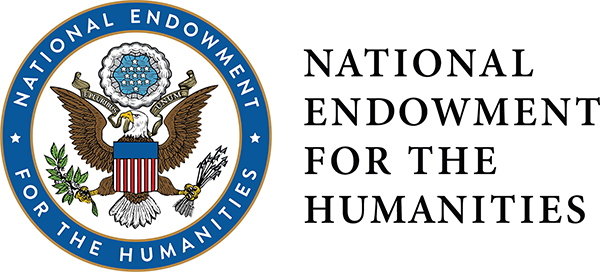NEH grant promotes integration of humanities and engineering at Purdue

The National Endowment for the Humanities has awarded a $150,000 grant to faculty members in the School of Engineering Education, Purdue School of Language and Cultures (SLC) and Global Engineering Alliance for Research and Education (GEARE) program for a curricular initiative that integrates the humanities and engineering.
In recent years, the humanities have been relegated in many contexts as irrelevant to real-world events and problems. Yet at the same time, there are calls for enhanced historical knowledge, cross-cultural experience, abilities to solve environmental and social problems worldwide, and an understanding of diverse people for professionals who work in engineering, technology, science, medicine and business. These knowledge sets and skills are particularly relevant for engineering students who will be tasked with solving complex and situated problems in their professional roles.
This curricular project will open new opportunities for engineering students to explore the liberal arts by integrating the humanities and engineering in coursework that offers experiential learning opportunities and also in an invited speaker series. The initiatives include:
Foundational Course: Humanities-Informed Engineering Projects (3 credit-hour course)
The course relies on a case study approach to analyze engineering projects. From the perspective of the humanities, this course asks students to question the events surrounding engineering projects, the technical decisions made and the effects of the projects, reflecting on specific engineering projects that occurred in the past or hypothetical projects. The pilot offering of this course resulted in great interest among students, because it is rare to study real projects and, at the same time, examine the complex variable of the humans involved as well as analyze projects’ impact on humanity. Regarding the outcomes of the course, one student commented, “The case studies are very interesting. I believe that I have grown as an educated engineer in learning about real-life problems. I have learned more about how to approach problems in a way that I will not ignore the needs of the people affected by the project.”
Engineering in a Global Context (Three 1 credit-hour courses)
Students in the GEARE program participate in study and internship abroad experiences. The three proposed courses expand on existing coursework that prepares students for experiences abroad. In the pre-departure course, students will develop awareness of their own culture, examine cross-cultural differences and prepare for living and working in a diverse world. In the post-program course, students will reflect on their experiences as related to their worldview, understanding of culture and professional goals. Additionally, a new course option will be offered called Cultural Engineering Research, which applies the perspectives and approaches from the foundational course to the analysis of engineering projects in the individual student’s location outside of the U.S.
Technology, Science, and Humanities Course (3 credit-hour course)
This course explores the ways in which technology, science and the humanities intersect. Students will examine novels, short stories and films that reflect on modern scientific and technological advances and developments.
Humanities-Integrated Speaker Series
Students from across the College of Engineering and the College of Liberal Arts will collaborate to organize an annual speaker series on the connections between the humanities and engineering that will be open to the public.
This project expands the role of the humanities in already existing undergraduate degree options in the GEARE program, which integrates language study, cultural training and domestic and international work/research experiences with engineering degrees. The project also will enhance offerings for SLC students and explore the potential for future integration between SLC and other engineering extracurricular and degree programs.
In addition to providing new learning opportunities for students, the team will examine the outcomes of integrating the humanities with engineering. The team already has developed a framework to define the ways in which humanities perspectives can inform engineering work (Davis et al., 2021). Building on this framework, they also examined students’ development of systems thinking in a pilot version of the Humanities-Informed Engineering course using a scenario-based assessment. The team then compared the outcomes using two scenario-based assessments in order to understand the theoretical value and the practical application of each assessment (Joshi et al., 2022). The results of these prior studies, taken collectively, indicate that students who practice the humanities-engineering approach are better positioned to consider technical, contextual and social aspects of engineering problems, a skill that is needed to solve the evermore complex problems that are faced in current times. Future work related to the new project will build on these earlier studies to continue to explore student outcomes related to integrating the humanities with engineering.
The project team includes three faculty members — Lori Czerwionka, associate professor of Spanish and Linguistics; Kirsten Davis, assistant professor of Engineering Education; and Gabriel Ríos-Rojas, assistant professor of teaching in SLC and the College of Engineering — who will lead the efforts. The core team also includes experts in the humanities and engineering who are faculty and administrators in SLC (Elena Coda and Jennifer William) and GEARE (Joe Tort).
Purdue University is ideally positioned to implement a humanities-engineering integrated approach to education. Purdue is well-known as a top university for engineering, and it is recognized for innovative interdisciplinary humanities-focused programs and certificates that reach across the university curriculum, such as Medical Humanities, Science and Technology Studies, Visual Design Engineering, the Cornerstone Integrated Liberal Arts Program and Degree+, a program that facilitates dual-degrees in Liberal Arts and STEM fields. The current project adds to the rich interdisciplinary landscape at Purdue.
 NEH Policy Statement:
NEH Policy Statement:
Any views, findings, conclusions, or recommendations expressed in this article does not necessarily represent those of the National Endowment for the Humanities.
